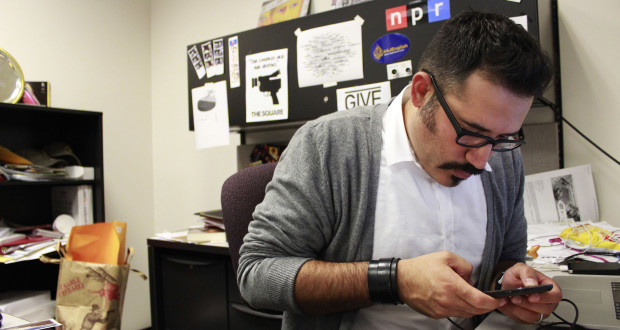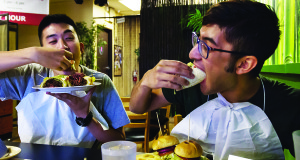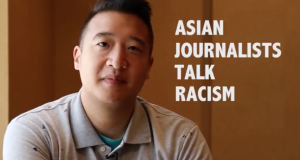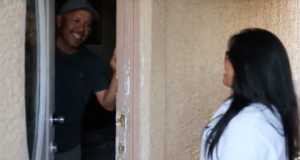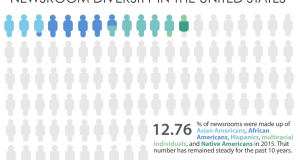In the late 1990s, Robert Hernandez pitched for the first time the idea of putting audio and photos together to his boss at the San Francisco Examiner. The concept was considered crazy at the time — the word “multimedia” didn’t exist.
Hernandez did it anyway. He bought a Sony mini disc-recorder with a microphone and went to Central America with his photographer wife to pursue multimedia storytelling. The Internet had taken off in the late ’90s, and Hernandez had been experimenting with early web tools while newspapers were still in the dark.
“No one really knew what we were doing, so no one really cared,” Hernandez said.
More than 10 years later, Hernandez is well known for his work as a web journalist (his Twitter handle is @webjournalist). He started playing with computers in the late 1990s and the first program he used was Microsoft PowerPoint to create graphics and charts for radio stations. His multimedia path took off when he took a course at San Francisco State University to study coding and HTML.
“Once I did that, I was bitten by the bug,” Hernandez said. “I have been an extra nerd since then, playing with coding, storytelling and cool technology tools all in the name of journalism.” He self-taught most of the technology and tools — even during family vacations at times to the displeasure of his wife.
The 37-year-old has taken the leading role in uniting and building a community of digital journalists and technologists as a national board member of the Online News Association, an organization focused on developing digital journalism. He co-founded #wjchat, a weekly forum on Twitter that engages participants from around the world.
“Even though the technology wasn’t there, if you have an idea, there are ways of doing it,” Hernandez says, “That’s my favorite thing about technology.”
Hernandez’s vision of the possibility of technology doesn’t always align with the culture of the industry.
“Change is slow, but I have been fortunate to help shepherd in that change,” he says.
As a journalism professor at the University of Southern California, he tries to influence the industry by nurturing the next generation of journalists. Laura Castaneda, associate director of the Annenberg School for Communication and Journalism at USC, says Hernandez brings extensive knowledge of all things digital to Annenberg. He often upgrades his skills, and though sometimes his students whine about the intensity of his classes, many appreciate how much he pushes them.
“He’s also got a real energy and is well-connected. He’s become a top-notch instructor with a wide range of contacts in the field,” Castaneda says.
Kim Bui, associate editor for social media and outreach for Southern California Public Radio, co-founded #wjchat with Hernandez. She has known him for seven years. She says Hernandez would like to try new things regardless what the outcome may be, and he has a good sense of curiosity for technology.
“He has this optimism about journalism, and he is coaching all of us through it,” Bui says.
Hernandez says he loves his life as a web journalist, tech guru and journalism professor and he can’t imagine doing anything else.
“There are folks that were comfortable, too comfortable,” he said. “They like the old days and I would tell you journalism is better without them in terms of evolving. But there are many of us who are passionate about journalism that can see the potential, the merging potential revolution in journalism, and we want to participate in it.
“So haters are going to hate, but we have to bypass them and continue forward.”
 VOICES Publishing from the AAJA National Convention
VOICES Publishing from the AAJA National Convention

